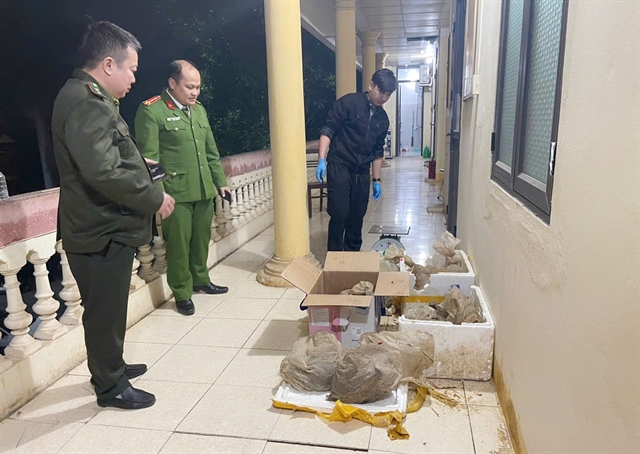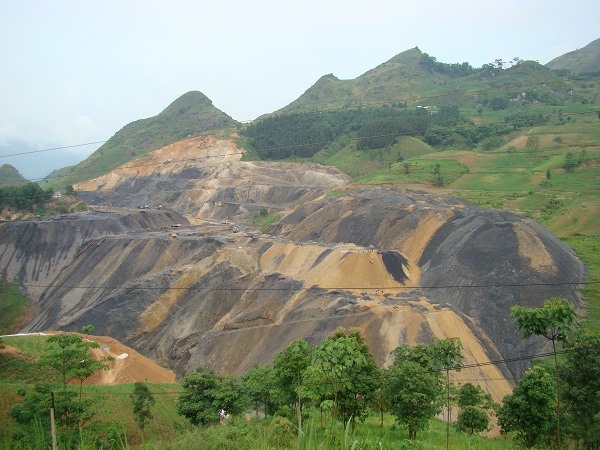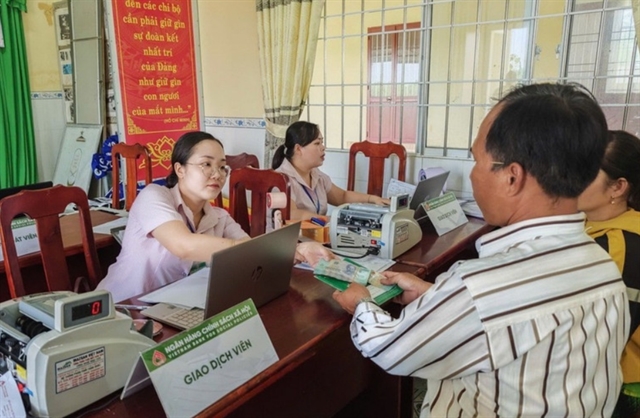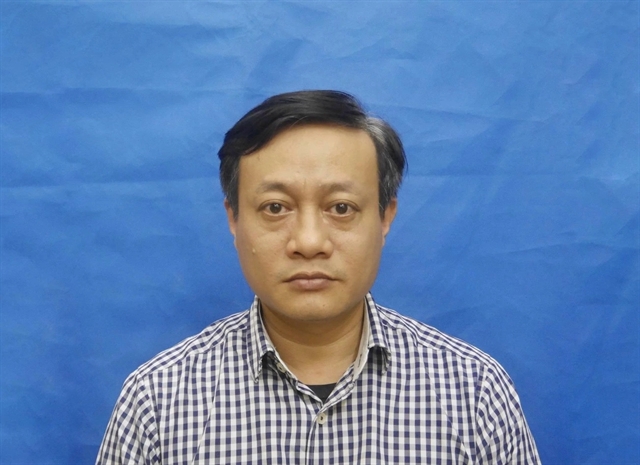 Environment
Environment

Mineral exploitation on one hand has made certain contributions to economic development of northern mountainous Hà Giang Province over the past years but has left serious corollary to the environment and social life of local people due to poor management, the Vietnam News Agency reports.
 |
| Mậu Duệ antimony mine in Hà Giang Province’s Yên Minh District. — Photo laodong.vn |
HÀ GIANG — Mineral exploitation may have contributed to economic development of northern mountainous Hà Giang Province over the past years but it has also caused serious problems to the environment and social life of local people, the Vietnam News Agency reports.
There are 44 businesses licensed by the Ministry of Natural Resources and Environment and local authorities to exploit 54 mines.
Mining activities has brought in an annual turnover of hundreds of billions of đồng for the province and generated jobs for local people with monthly incomes of between VNĐ 3-4 million (US$130-170), according to local authorities.
However, the lack of strict management and limitations in mineral exploitation and processing technology, technique and capacity of mining companies has caused damage to the environment and posed risks to the exhaustion of this natural resources.
Mineral exploitation pollutes the environment by discharging waste and hazardous dust, pollutes farm land, water resources and damages forests. It also led to high risks of landslides and flooding.
Mining activities at Sắt Sàng Thần in Minh Sơn Commune in Bắc Mê District is an example of serious consequences to the environment and local people.
A recent survey by the provincial Union of Science and Technology Associations shows mineral exploitation left layers of landslide, deep holes and huge cinder waste dumping grounds, making it hard to bring the area back to its initial state.
The total area of protective forest in the commune was remarkably reduced after more than 30ha were changed for the purpose of mineral exploitation. Meanwhile, the air was polluted and farmland and water resources were damaged by sludge and cinder, not to mention risks of flash floods and landslide.
Local people are also upset because of hazardous dust and noise pollution caused by mining activities.
The 10-km key road running through the commune which cost tens of billions of đồng from the State budget was seriously damaged because of trucks transporting minerals from the mining site to Bình Vàng industrial zone for processing.
Triệu Văn Màng, head of Khuổi Kẹn hamlet in Minh Sơn Commune, said since the mining site started operating in 2010, around 80 trucks use the road each day and each truck travels an average of four times per day, causing serious air and noise pollution.
“People living along Khuổi Kẹn spring, which is a kilometre away from the mining site, cannot use water from the spring for daily activities and farming because it was seriously polluted,” he said.
Trương Văn Khương, a resident in Khuổi Kẹn hamlet, said trucks from the mining site operated from 5am to 10pm every day, badly affecting living conditions.
“Local roads were damaged and we have to live with dust and noise pollution. Children often suffer respiration related diseases,” he said.
The chopping down of trees and overuse of water sources from Khuổi Kẹn spring (over 1,300cu.m per day) for mineral exploitation has reduced the water resources for local people’s living and agricultural production in five surrounding hamlets, including Lũng Vầy, Khuổi Kẹn, Nà Sáng, Bình Ba and Ngọc Trì.
In order to have enough water for farming, many local households had to buy land to dig wells and use pipes of up to 1,000m in length to take water from the wells to their rice fields. Others had to change their crops to growing those that require less water.
“The living conditions of local people became more difficult day by day and many of them had to leave the hamlet to find somewhere else to live,” Màng said.
Solutions
The provincial Department of Natural Resources and Environment has proposed the provincial People’s Committee improve management tasks over mining activities, including increasing supervision and inspection to prevent illegal mineral exploitation and requesting mining enterprises to recover the environment and other damage caused by mining activities.
Director of the department Hoàng Văn Nhu said the provincial planning of mineral exploration, exploitation and use during the 2015-20 period with a vision towards 2030 had policies to encourage investment in renewing mineral exploitation and process technology to effectively exploit and use natural resources while protecting the environment.
However, investing in technology requires huge capital for many businesses still operating with outdated technology and equipment, leading to high production costs and environmental issues, he said.
Head of the department’s mineral resources, water and hydro-meteorological management office Tô Danh Xuân said it was necessary to increase study, invest and apply environmental-friendly technology in mineral exploitation and processing and enhance inspection over operation of mining businesses to ensure they regularly assess environmental impacts in order to have timely response to pollution.
Businesses causing environmental pollution would be strictly punished, he said.
Organisations and individuals investing in new mineral exploitation projects must submit to local authorities for approval environmental recovery plans, he added. — VNS



